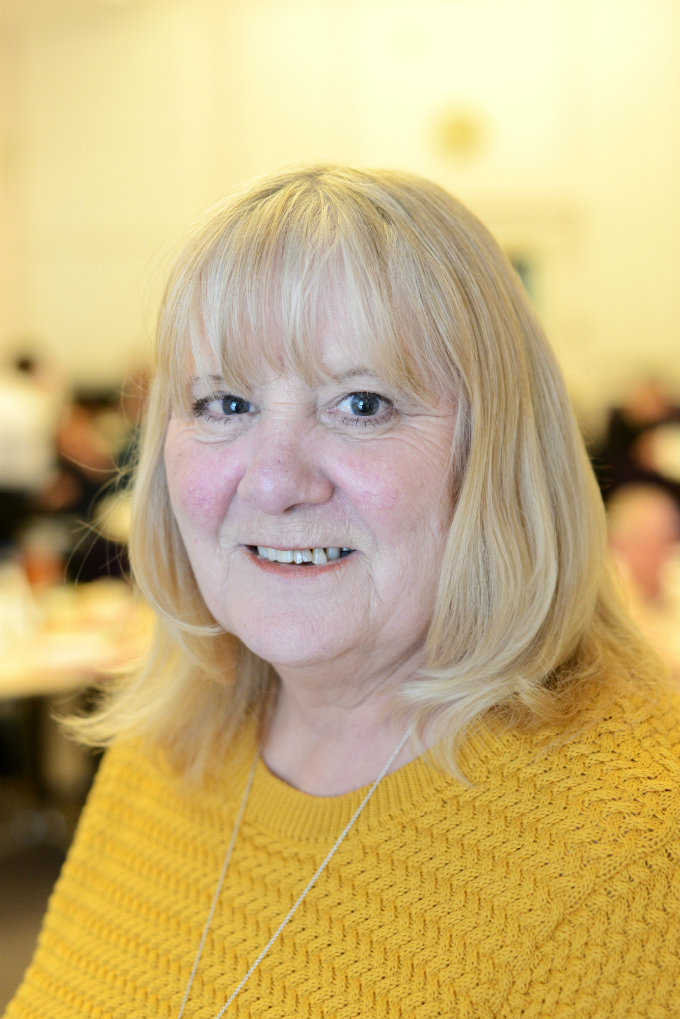Nursing staff will shape every aspect of our campaign for legislation in England
“I’m petrified of losing my PIN, not because I’m not a good nurse but because we’re under so much pressure due to lack of staff that mistakes could be made that have an impact on patient care.”
These are Natalie’s words. She qualified a year ago and is already questioning her future in the unit where she works. It’s the guilt that really consumes her. “I leave every shift feeling that I could have given better care if we had more staff,” she says.
I’m petrified of losing my PIN, not because I’m not a good nurse but because we’re under so much pressure due to lack of staff
Natalie’s not alone. When we surveyed members about their last shift at work, the response was shocking. More than half said they felt care had been compromised because there were fewer nurses on shift than there should have been.
It’s why the RCN’s campaign on staffing for safe and effective care is so desperately needed and why we need your help to make sure it’s a success. Over the past few years we’ve been collecting evidence and have come up with five key things we want a law to deliver in all four countries of the UK.
What we want
Though each country is on a different journey, our work is underpinned by five principles for ensuring nurse staffing for safe and effective care.
- Numbers
We want the right number of nurses, with the right skills, to be in the right place, at the right time – so patients’ needs are met.
- Accountability
We want it to be clear whose job it is to make sure there are enough nurses to meet patients’ needs. - Strategy
We want a vision for tackling nurse shortages and making sure nursing helps meet the whole country’s health needs. - Plans
We want clear plans for getting the right numbers and skill mix of nursing staff and we want checks to make sure they really happen. - Education
We want governments to educate enough nursing students, and develop existing staff, to meet patients’ needs.
In England, we’ll be building on what we’ve learned from our successful ongoing campaigns in Wales and Scotland, and we’ll be working alongside members to shape every aspect of the campaign right from the beginning. But how do you begin to tackle a problem this big when there are almost 41,000 nurse vacancies in England right now?
For Patricia Marquis, the Director of RCN England, it’s about building a campaign from the ground up and getting all members to feel that they can do something, no matter how small, to drive change.
“I know how passionate members are about this issue and harnessing this passion will be pivotal to this campaign,” she says. “We need people to sit up and take notice. This isn’t just a problem facing nursing staff. It’s having a huge impact on patient care. If we don’t tackle this now, at some point in the future, everyone will suffer.”
This isn’t just a problem facing nursing staff. If we don’t tackle this now, at some point in the future, everyone will suffer
The first meeting to kick-off the campaign in England was held in February. It brought members, RCN reps and staff together to decide what can be done locally to make this an issue on everyone’s radar.
Chair of RCN Council Sue Warner, who opened the event, told those attending that making sure the campaign for safe staffing succeeds across the UK is her top priority.
“Members have told us time and time again that this is what needs to happen in order for them to be able to give safe and effective care to patients,” says Sue. “RCN Council and the whole organisation is behind this and we will make sure the voice of members – the voice of nursing – is heard.”
“My colleagues feel anxious when they come to work,” said Natasha who attended the event. She's concerned that often there aren't enough nurses to provide safe care and things are getting worse.
Making it happen
Patricia says: “We can’t stand back and allow our health services to deteriorate any longer because of something that is within our government’s control. We need funding for nursing education so more people can join the profession and we need clear accountability for tackling the huge shortfall of nursing staff. It won’t be easy, but we must come together to make this happen.”
Making it happen involves members. Lots and lots of members. Over the next few months campaign plans in each of the RCN’s nine English regions will take shape, with nursing staff at the forefront of leading local action.
We can’t stand back and allow our health services to deteriorate any longer because of something that is within our government’s control
Danielle is one of them. “We need this campaign to be exciting, to empower people and to get them believing that this is a battle they can help win,” she says. “We need to reach out on social media, be emotive and get the public behind us. But more than anything we need to be visible, to do things that grab attention and get us noticed.
“It might be about hosting small rallies outside hospitals or handing out postcards to patients at work. But we also need to gather data of how shifts are really being staffed on the ground. We could introduce a safety reporting system, with red flags raised to the RCN. There are so many ways we could drive this campaign, the most important thing is that members join in.”
Other ideas suggested at the event include having workplace champions for safe staffing and getting senior nurses to support the campaign so they can be advocates of its aims at board level.
There are so many ways we could drive this campaign, the most important thing is that members join in
Members also felt a strong national media campaign was needed to raise awareness of the issue among the public.
“When I spoke to my friends about nurse staffing before coming here, they had no idea that there was no law to govern the number of nurses to the number of patients,” says Jeremy. “They were appalled that staffing levels aren’t mandated. We must do more to make everyone realise we need legislation.”
RCN President Anne Marie Rafferty, who is involved in campaigning for safe nurse staffing levels across the UK, closed the event with a rousing speech telling members: “We are trying to create a nursing nuclear reaction.”
Anne Marie says: “We have the power to create real change. We can see that already in the strides we’ve made with legislation in Wales and draft legislation in Scotland.”
Make no mistake. The road to success won’t be swift, and is likely to be bumpy. But as Anne Marie says: “Our call for legislation in all four countries of the UK has the potential to be one of the most potent campaigns the College has ever run. We are nurses and we will do this.”
This campaign is all about members. Here’s what a few more said at the event.
You could get involved too
Events are now being planned in each English region so you too could help shape the campaign.
What’s happening in the rest of the UK?
Northern Ireland
There is currently no law on safe and effective staffing in Northern Ireland. Meanwhile, the number of vacant nursing posts continues to grow.
With the collapse of the Northern Ireland Assembly and Executive in 2017, the current political impasse means that RCN Northern Ireland faces a unique set of challenges when it comes to calling for safe and effective care to be enshrined in law in Northern Ireland.
Because of the political situation, RCN Northern Ireland is not running a ‘Safe staffing campaign’ in the traditional sense. There has, however, been a significant amount of work undertaken in Northern Ireland to develop a framework to enable the profession to identify safe and effective staffing ranges within eight clinical settings.
This work was commissioned by the Chief Nursing Officer and has been led by the Director of Nursing in the Public Health Agency. The RCN has been a full partner in this work since the very beginning and sits on the Delivering Better Care Steering Group. The work is professionally led and frontline staff have contributed to the work through involvement in expert reference groups.
The framework uses safe staffing ranges rather than ratios. The application of four influencing factors; workforce, environment and support, activity and professional regulatory requirements allows for professional judgment be used to identify the required range. This framework helps ensure that complex workloads and increasing acuity can be accommodated within workforce planning.
Find out more about the framework
Scotland
The Health and Care (Staffing) (Scotland) Bill was introduced in May last year. Since then members have been helping to shape what a new law for safe nurse staffing levels might look like.
We launched our Ask for More campaign last September and through this members have influenced the bill as it’s passed through parliament securing changes to make sure it works in real time and to strengthen the importance of reporting and accountability for staffing levels.
The campaign has also made sure the bill says senior charge nurses should not hold a caseload and that nursing staff should have time for CPD. Critically, the bill now includes the responsibility on Scottish Government to ensure there is an adequate supply of nurses for the NHS.
There is much work to be done ahead of the final stage of the parliamentary process to protect these changes and secure further changes. In particular, we’re looking to influence the social care section of the bill so a new law makes a real difference for nursing teams and their patients across Scotland.
Find out more about our Ask for More campaign
Wales
After campaigning long and hard for almost 10 years, members in Wales helped secure the first law in Europe for safe and effective nurse staffing. The Nurse Staffing Levels (Wales) Act became law on 21 March 2016.
It means health boards have a legal duty to regard the importance of ensuring appropriate levels of nurse staffing in all settings. On adult wards in NHS hospitals, an appropriate nurse staffing level must be calculated and maintained. This must be monitored by health boards and action taken if staffing levels aren’t met.
We now want to work with the Welsh Government to make sure the guidance for implementing the law is clear and that the act is doing what it set out to achieve.
Members are continuing to campaign for enough nurses to be educated and for the act to be extended to other areas including children’s nursing, mental health, community and care homes. The Welsh Government has promised this will happen and we intend to hold them to it.
Watch a film about how members helped to secure the new law
Read more about our campaign for safe staffing across the UK













